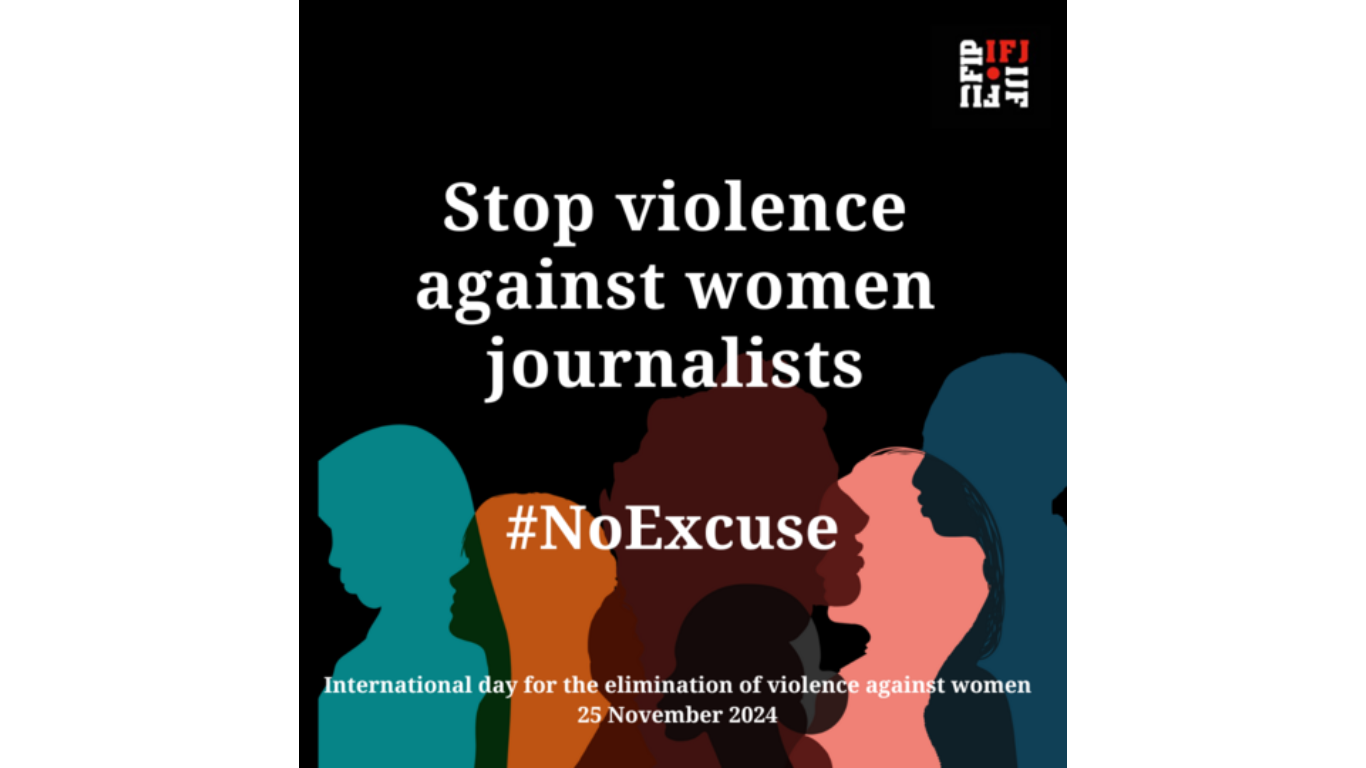Ahead of International Day for the Elimination of Violence against Women (25 November), the International Federation of Journalists (IFJ) and its Gender Council express their deep concern over the continuing rise in violence against women journalists, both online and offline. The Federation urges world governments to swiftly implement existing international instruments that outlaw gender-based violence.
As the world approaches the 30th anniversary of the Beijing Declaration and Platform for Action in 2025 women journalists face disproportionate harassment, threats, and physical attacks. Online platforms have become breeding grounds for misogyny and abuse, with women journalists, in particular freelancers, subjected to targeted campaigns of hate speech, doxing, and trolling as illustrated by recent case in India, where investigative journalist Rana Ayyub received over 200 rape and death threats, after her number was leaked by a right-wing content creator on social platform X. Offline, women face sexual harassment, assault, and even murder in the course of their work, in particular in war zones. According to the IFJ statistics, of the 128 journalists killed in 2023, 14 women were killed in the course of duty.
Pointing to existing international instruments that outlaw violence against women and against journalists, the IFJ calls on governments and international organisations to take concrete steps to address the issue which seriously hampers women’s journalists’ well being, their income, their freedom of expression and the public’s right to know. The Federation calls in particular on Member states to fully implement the Convention on the Elimination of All Forms of Discrimination against Women (CEDAW), the ILO Convention C 190 on violence and harassment in the world of work and the UN Security Council Resolutions 2222/2015 and 1738/2006, which condemn international attacks against journalists and media workers in situations of armed conflict.
“These instruments provide a strong legal framework for protecting women journalists’ rights, including the right to freedom of expression and the right to work free from violence, including in conflict zones,” said IFJ President Dominique Pradalié. “World governments must swiftly act to put them in practice in addition to our draft international convention on the safety and independence of journalists”.
The IFJ also urges media organisations to adopt gender-sensitive approaches in newsrooms, including policies that promote gender equality and safety in the workplace . These policies should include measures to prevent and address harassment, discrimination, and violence, as well as provide support services for targeted journalists, including freelancers.
IFJ Gender Council chair, Maria Angeles Samperio said: “The IFJ campaign ‘You are not alone” contains a series of tools to support media and unions to combat online violence. It is time to use them and send a clear message to harassers and attackers that gender-based violence, either off or online is not ok. We will continue to work with our affiliates and partners to raise awareness, demand accountability, and create a safer environment free from gender-based violence for journalists to practice their profession without fear of violence, no matter their gender”.
Together with other Global Union Federations the IFJ will join the UNUNiTE campaign (Nov 25 – Dec 10) — an initiative of 16 days of activism against gender-based violence and calls on its affiliates to join this year’s campaign under the theme, “Every 10 Minutes, a woman is killed. #NoExcuse. UNiTE to End Violence against Women”.
Source: IFJ




